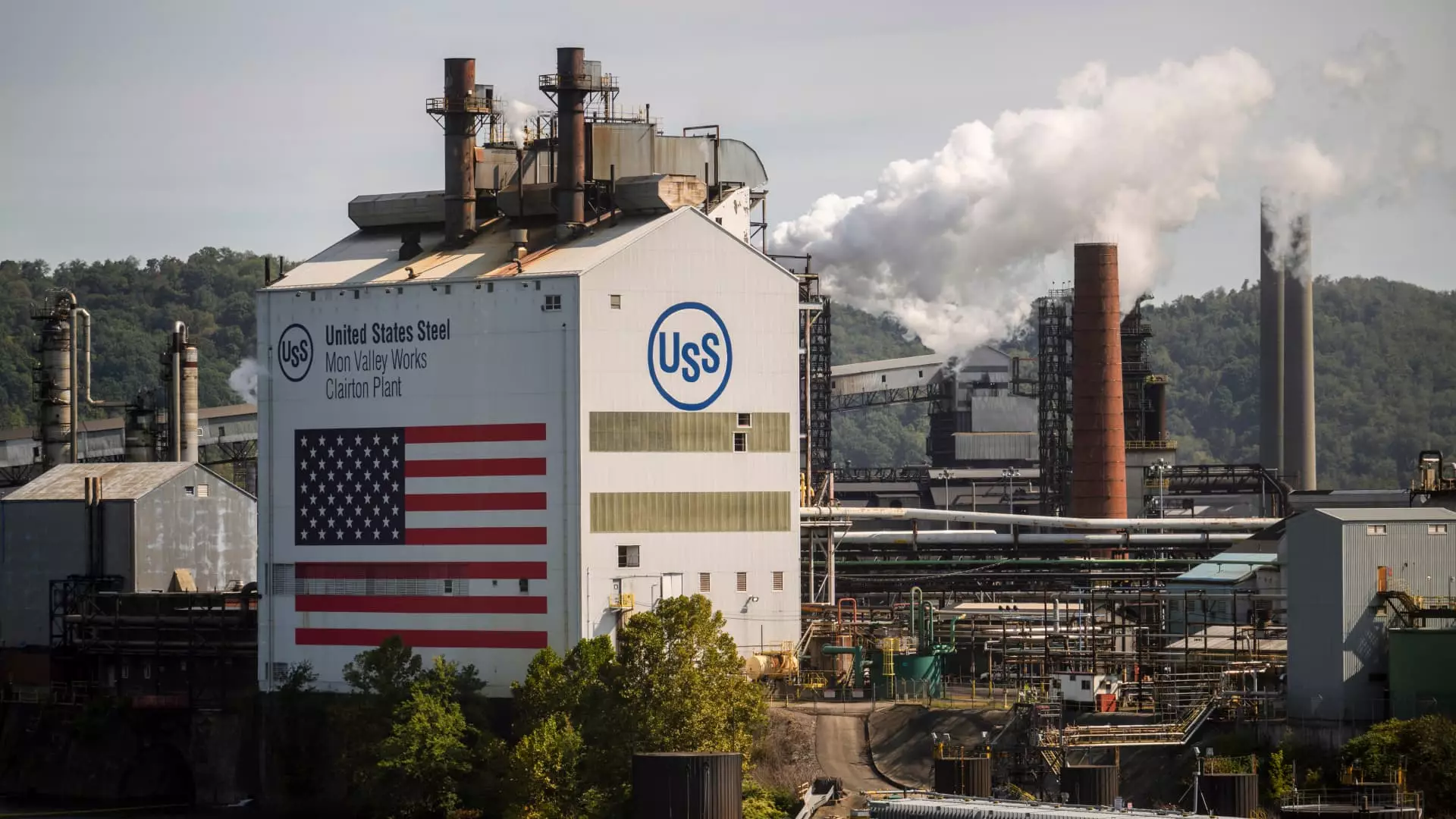The latest developments surrounding U.S. Steel and Nippon Steel’s bid to navigate the American legal landscape highlight a quintessential irony: a former President’s ongoing influence in the realm of corporate mergers and acquisitions. The Trump administration’s request for an extension to deadlines in the lawsuit against the Committee on Foreign Investment in the United States (CFIUS) isn’t just a procedural formality; it’s a significant indicator of Trump’s re-emerging support for the merger—an initiative effectively halted under President Biden. In an era where national security considerations frequently disrupt global market dynamics, the legal and political entanglements of this case are nothing short of a drama that simultaneously illustrates the vulnerabilities of multinational corporations and the potential for executive power manipulation.
A Prudent Business Strategy Shunned by Politics
What’s abundantly evident is the priority that Trump seems to place on business interests, as he openly suggests that a minority stake from Nippon Steel might be palatable. However, this sentiment is intertwined with the political landscape in which corporate ambitions often seem to ride on the fickle waves of public sentiment and electoral promises. The allegations that Biden’s administration unduly influenced CFIUS’s determination in favor of union interests raise questions on whether politics should intertwine with strategic business decisions. The assertion that corporate gains should be sacrificed for electoral safety invites scrutiny concerning the integrity of governance and the implications of using governmental machinery for perceived political ends.
Corporate Power Versus National Interest
This pendulum swing between advocacy for corporate synergy and the safeguard of national interests fosters an unsettling paradox. While there can be valid concerns about foreign investment undermining domestic economic stability, it is problematic to use national security as a cloak for advocating specific political agendas. The lawsuit filed by U.S. Steel and Nippon Steel claims violations of their rights to a fair review, posing a critical question: Do we see the genuine protection of American interests, or is this merely an instance of political posturing? If the latter prevails, the long-term implications could undermine trust in the judicial processes meant to both protect and scrutinize foreign investments.
Federal Intervention and Market Dynamics
The Department of Justice’s current motion for an extended timeframe to facilitate negotiations can potentially be seen as recognizing the complexities involved in not only this case but also the larger implications of such corporate deals in a globalized economy. The hope is to eliminate the need for court resolution, signaling an opportunity for parties to find common ground. However, this goal raises questions about who ultimately benefits. The market dynamics of the steel industry, plagued by cyclical downturns and competitive pressures from external sources, also add layers of complexity to the motivations of all parties involved.
Reassessing Public Attitudes Toward Corporate Influence
As we analyze this intricate web of corporate power and national interest, one must ponder: how should public attitudes shift regarding corporate influence in politics? The plight of U.S. Steel and Nippon Steel encapsulates a broader societal debate on the balance of power, the bidding wars of corporate giants, and the authoritarian tendencies that may arise when political leaders wield their authority over commercial transactions.
In an increasingly interconnected world, the ramifications of these corporate machinations extend far beyond boardrooms and courtrooms. They illustrate the delicate interplay of power, governance, and commerce, raising significant questions about the trajectories we long for our economic and political landscapes to undertake.


Leave a Reply